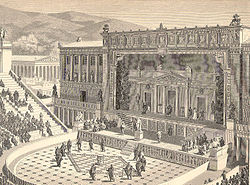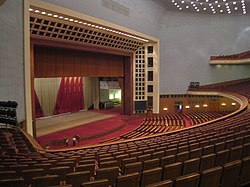This article needs additional citations for verification .(April 2021) |
A hemicycle is a semicircular, or horseshoe-shaped, legislative debating chamber where members sit to discuss and vote on their business. Although originally of Ancient Greek roots, the term and modern design derive from French politics and practice. [1]













